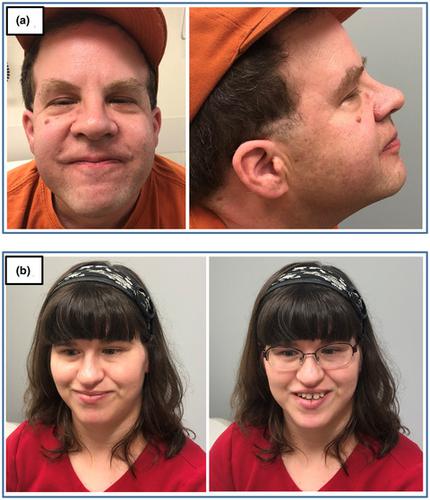当前位置:
X-MOL 学术
›
Mol. Genet. Genomic Med.
›
论文详情
Our official English website, www.x-mol.net, welcomes your
feedback! (Note: you will need to create a separate account there.)
Community-based recruitment and exome sequencing indicates high diagnostic yield in adults with intellectual disability.
Molecular Genetics & Genomic Medicine ( IF 1.5 ) Pub Date : 2020-08-07 , DOI: 10.1002/mgg3.1439 Aniko Sabo 1 , David Murdock 1 , Shannon Dugan 1 , Qingchang Meng 1 , Marie-Claude Gingras 1 , Jianhong Hu 1 , Donna Muzny 1 , Richard Gibbs 1
Molecular Genetics & Genomic Medicine ( IF 1.5 ) Pub Date : 2020-08-07 , DOI: 10.1002/mgg3.1439 Aniko Sabo 1 , David Murdock 1 , Shannon Dugan 1 , Qingchang Meng 1 , Marie-Claude Gingras 1 , Jianhong Hu 1 , Donna Muzny 1 , Richard Gibbs 1
Affiliation

|
Establishing a genetic diagnosis for individuals with intellectual disability (ID) benefits patients and their families as it may inform the prognosis, lead to appropriate therapy, and facilitate access to medical and supportive services. Exome sequencing has been successfully applied in a diagnostic setting, but most clinical exome referrals are pediatric patients, with many adults with ID lacking a comprehensive genetic evaluation.
中文翻译:

基于社区的募集和外显子组测序表明,智力障碍成年人的诊断率很高。
为智障人士(ID)建立基因诊断可以使患者及其家人受益,因为它可以告知预后,采取适当的治疗措施并促进获得医疗和支持服务。外显子组测序已成功应用于诊断环境,但大多数临床外显子组转诊为儿科患者,许多ID成年人缺乏全面的遗传评估。
更新日期:2020-10-12
中文翻译:

基于社区的募集和外显子组测序表明,智力障碍成年人的诊断率很高。
为智障人士(ID)建立基因诊断可以使患者及其家人受益,因为它可以告知预后,采取适当的治疗措施并促进获得医疗和支持服务。外显子组测序已成功应用于诊断环境,但大多数临床外显子组转诊为儿科患者,许多ID成年人缺乏全面的遗传评估。











































 京公网安备 11010802027423号
京公网安备 11010802027423号